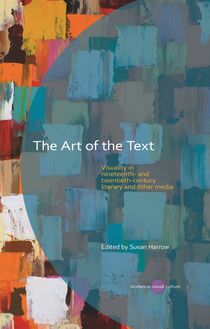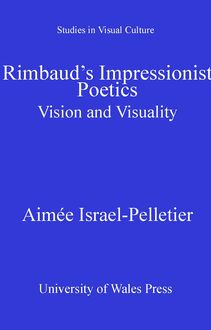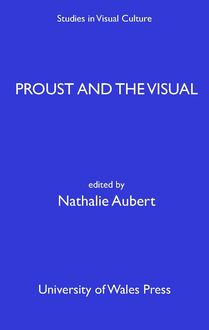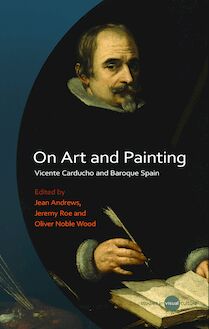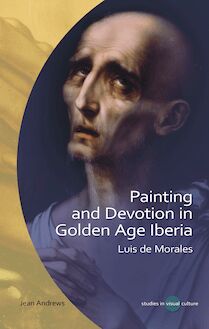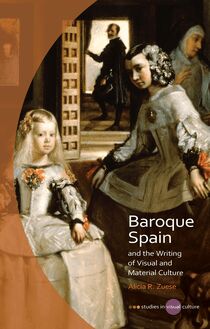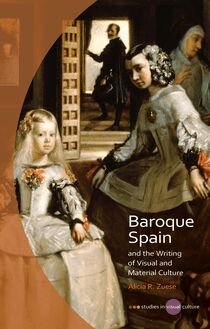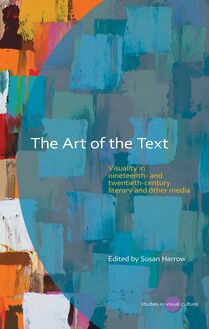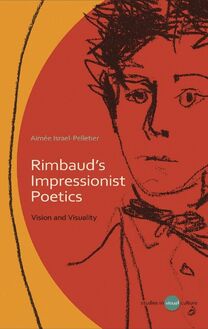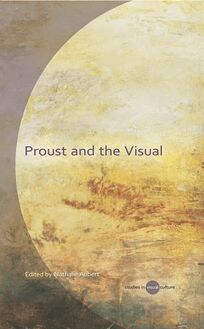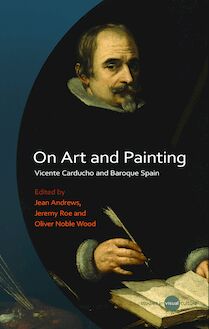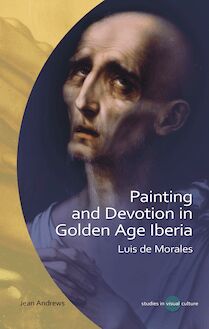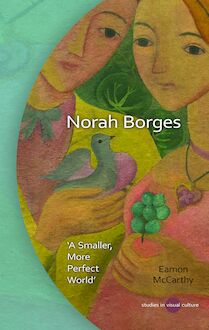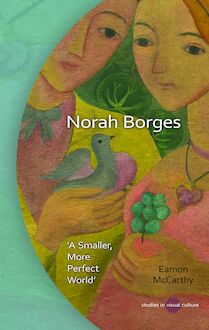-
 Univers
Univers
-
 Ebooks
Ebooks
-
 Livres audio
Livres audio
-
 Presse
Presse
-
 Podcasts
Podcasts
-
 BD
BD
-
 Documents
Documents
-
- Cours
- Révisions
- Ressources pédagogiques
- Sciences de l’éducation
- Manuels scolaires
- Langues
- Travaux de classe
- Annales de BEP
- Etudes supérieures
- Maternelle et primaire
- Fiches de lecture
- Orientation scolaire
- Méthodologie
- Corrigés de devoir
- Annales d’examens et concours
- Annales du bac
- Annales du brevet
- Rapports de stage
La lecture à portée de main
Découvre YouScribe en t'inscrivant gratuitement
Je m'inscrisDécouvre YouScribe en t'inscrivant gratuitement
Je m'inscrisEn savoir plus
En savoir plus

Description
Norah Borges (1901–98) was the sister of the celebrated Argentine writer Jorge Luis Borges. She first began producing art in Switzerland, where her family was trapped during the First World War, and travelled to Spain before returning to her native Argentina with her new styles of painting. In the 1920s, her work was published on the covers of important cultural magazines, but she is now largely forgotten. In her works, Borges created a world full of almost angelic figures – describing it as a smaller, more perfect world – mostly a serene space dominated by women. This book explores how Borges created that space and developed her own unique style of painting, studying the connections she made with the leading artists and writers of her time.
Acknowledgements
List of illustrations
Introduction
Chapter 1 – A Style of One’s Own
Chapter 2 – Finding an appropriate (Argentine) style
Chapter 3 – Consolidating styles between Argentina and Spain
Chapter 4 – Creating a perfect world
Conclusions
Sujets
Informations
| Publié par | University of Wales Press |
| Date de parution | 01 septembre 2020 |
| Nombre de lectures | 0 |
| EAN13 | 9781786836311 |
| Langue | English |
| Poids de l'ouvrage | 4 Mo |
Informations légales : prix de location à la page 0,4400€. Cette information est donnée uniquement à titre indicatif conformément à la législation en vigueur.
Extrait
Eamon McCarthy Norah Borges ‘A Smaller, More Perfect World’
‘McCarthy’s
comprehensive study of Norah
Borges’s work and its reception ofers a
valuable contribution to our understanding not
only of this fne artist’s personal output, but also of
the historical and cultural context in which her ideas
and paintings were formed. The seemingly contradictory
“smaller, more perfect world” of the title, an inspired
reference to its female boundaries, encapsulates the
gendered subject matter of the study and of its approach
– the importance of the marginal. The other Borges,
an outspoken admirer of Norah’s work,
would have approved.’
‘The author
Professor Evelyn Fishburn,
illuminates Norah Borges’s
University College London
work with great sympathy and
insight into her aims and achievements.
Moving through all of the contexts in
Norah Borges (1901–98) was which she worked, this frst book in English
the sister of the celebrated is a milestone, and should be read by anyone
Argentine writer Jorge Luis interested in women and the avant-garde.’
Borges. She frst began Dr Roberta Quance, author of
producing art in Switzerland, In the Light of Contradiction:
where her family was trapped Desire in the Poetry of
during the First World War, and Federico García Lorca
travelled to Spain before returning to her
native Argentina with her new styles of painting.
In the 1920s, her work was published on the covers of important
cultural magazines, but she is now largely forgotten. In her works,
Borges created a world full of almost angelic fgures – describing
it as a smaller, more perfect world – mostly a serene space
dominated by women. This book explores how Borges
created that space and developed her own unique
style of painting, studying the connections she made
with the leading artists and writers of her time.
Cover illustration:
Pablo y Virginia (1927),
Eamon McCarthy is Lecturer in Hispanic oil on wood, 73x83cm.
Studies at the University of Glasgow. © Herederos de Norah Borges.
Cover design: Olwen Fowler
www.uwp.co.uk
Gwasg Prifysgol Cymru
University of Wales Press
Norah Borges.indd 1 15/07/2020 12:15NORAH BORGES
00 Prelims NORAH 2020_7_13.indd 1 13-Jul-20 11:39:12 AMStudieS in ViSual Culture
SerieS editorS
Margaret t opping
Queen’s University, Belfast
r achael Langford
Cardif University
Giuliana Pieri
Royal Holloway, University of London
editoriAL Bo Ard
Mieke Bal
University of Amsterdam
Paul Cooke
University of Leeds
Anne Freadman
The University of Melbourne
María Pilar r odríguez
Universidad de Deusto
eric thau
University of Hawai’i at Manoa
available in series
Jean Andrews
Painting and Devotion in Golden Age Iberia: Luis de Morales (2020)
Jean Andrews, Jeremy Roe and Oliver Noble Wood (eds),
On Art and Painting: Vicente Carducho and Baroque Spain (2016)
Nathalie Aubert (ed.),
Proust and the Visual (2013)
Susan Harrow (ed.),
The Art of the Text: Visuality in nineteenth- and twentieth-century
literary and other media (2013)
Aimee Israel-Pelletier,
Rimbaud’s Impressionist Poetics: Vision and Visuality (2012)
00 Prelims NORAH 2020_7_13.indd 2 13-Jul-20 11:39:12 AMStudieS in ViSual Culture
Norah Borges
'A Smaller, More Perfect World'
Eamon McCarthy
University of Wales Press
2020
00 Prelims NORAH 2020_7_13.indd 3 13-Jul-20 11:39:14 AM© Eamon McCarthy, 2020
All rights reserved. No part of this book may be reproduced in any material
form (including photocopying or storing it in any medium by electronic
means and whether or not transiently or incidentally to some other use of
this publication) without the written permission of the copyright owner.
Applications for the copyright owner’s written permission to reproduce any
part of this publication should be addressed to the University of Wales Press,
University Registry, King Edward VII Avenue, Cardif CF10 3NS.
www.uwp.co.uk
British Library CIP Data
A catalogue record for this book is available from the British Library
ISBN 978-1-78683-630-4
e-ISBN 978-1-78683-631-1
The right of Eamon McCarthy to be identifed as author of this work has been
asserted in accordance with sections 77 and 79 of the Copyright, Designs and
Patents Act 1988.
Typeset in Wales by Eira Fenn Gaunt, Cardif
Printed by CPI Antony Rowe, Melksham
00 Prelims NORAH 2020_7_13.indd 4 13-Jul-20 11:39:14 AMContents
Acknowledgements ix
List of illustrationsxi
Introduction1
1 A Style of One’s Own19
2 Finding an Appropriate (Argentine) Style 51
3 Consolidating Styles between Argentina and Spain 77
4 Creating a Perfect World 111
Conclusion 155
Notes161
Bibliography217
Index233
00 Prelims NORAH 2020_7_13.indd 5 13-Jul-20 11:39:14 AMThis page intentionaly left blankSeries editors’ preface
Studies in Visual Culture provides a forum for ground-breaking enquiry into
visual-cultural production in its social, historical and cultural contexts. The
series places particular emphasis on the exchanges, transactions and
displacements that link Europe to wider global contexts across the visual-cultural
feld. The series seeks to promote critical engagement with visual media as
ideological and cultural as well as aesthetic constructs, and foregrounds the
relationship of visual cultures to other felds and discourses, including cultural
history, literary production and criticism, philosophy, gender and sexuality
research, journalism and media studies, migration and mobility studies, social
sciences, and politics. The Studies in Visual Culture series thus focuses on
exploring synergies and key debates between disciplines, concepts and
theoretical approaches, and ofers an exciting new arena for testing and
extending disciplinary, theoretical and conceptual boundaries.
00 Prelims NORAH 2020_7_13.indd 7 13-Jul-20 11:39:14 AMThis page intentionaly left blankAcknowledgements
I have to begin with sincere thanks to Roberta Quance. Roberta frst introduced
me to Norah’s work and has always been so generous with her knowledge.
I am deeply grateful to her for her support for my work and for continuing
to share her ideas with me. I would never have been able to complete this
project without her continued guidance.
I owe a huge debt of gratitude to Norah’s son, Miguel de Torre Borges,
and her grandson, Fernando de Torre. Miguel has been so generous with his
time. He welcomed me into his home many times and shared recollections
and memories, as well as giving me access to images and material held by
the family. I was also very fortunate to meet and chat with Miguel’s wife,
Babo, who was the model for the painting on Plate 14. My deep thanks to
both of them for welcoming me so warmly at all times. Without them, I would
never have developed such a deep understanding of Norah’s life. Fernando
has also very kindly shared his own research and I hope we can continue
sharing our Norah-related discoveries for many years to come. I am particularly
grateful to the family for allowing me to reproduce so many of Norah’s works
in this book.
A project like this relies upon a support network of academic mentors
and friends who know when to ask about it and when not to, as well as
providing their unstinting support along the way. Many thanks to Isabel
Torres, Nigel Harkness, Anne Holloway, Ricki O’Rawe, Jackie Clarke, Georgina
Collins, Jordi Cornella, Elizabeth Geary-Keohane, Kirsty Gowling-Afchain,
Greg Kerr, PJ Lennon, and Henriette Partzsch.
I was exceptionally lucky to be welcomed by a group of people in Argentina
who had all published on Norah and who know her work so well. It has always
been a great pleasure to spend time with Ana Martínez Quijano, May Lorenzo
Alcalá, Patricia Artundo and Sergio Baur. I am grateful to all of them for their
generosity to me. Particular thanks to Ana for all her help and support during
00 Prelims NORAH 2020_7_13.indd 9 13-Jul-20 11:39:14 AMAcknowledgements
my trips to Buenos Aires as well as for her invaluable assistance in fnding
the images for this text.
Many thanks to Alessia Zinnari, Matías Iesari and Jorge Cordonet for all
their support with the images. I am also deeply grateful to Cheryl Hunston
for her diligent work on the index.
I wish to thank all my friends and family for their unfagging support
throughout this project.
x
00 Prelims NORAH 2020_7_13.indd 10 13-Jul-20 11:39:14 AMIllustrations
Cover
Pablo y Virginia (1927), oil on wood, 73x83cm. © Herederos de Norah Borges.
Figure 1
‘Un cuadro sinóptico de la pintura’, Martín Fierro, 39 (1927), 2–3. © Herederos
de Norah Borges.
Figure 2
La Verónica (1918), print, 25x30cm. © Herederos de Norah Borges.
Figure 3
Guiñoles sobre telón (c.1919), mixed media. © Herederos de Norah Borges.
Figure 4
El circo, Ultra, 1/1 (1921), cover. © Herederos de Norah Borges.
Figure 5
Buenos Aires, Sur, 1/1 (Summer 1931), unnumbered plate. © Herederos de
Norah Borges.
Figure 6
Santa Rosa de Lima (c.1932), oil. © Herederos de Norah Borges.
Figure 7
Sirenitas (c.1932), oil. © Herederos de Norah Borges.
00 Prelims NORAH 2020_7_13.indd 11 13-Jul-20 11:39:14 AMIllustrations
Figure 8
Sin título (1935). Published with Guillermo de Torre, ‘Para una estética de las
Procesiones’, Saber Vivir, 2/9 (April 1941), 28–31 (29). © Herederos de Norah
Borges.
Figure 9
Sin título, ilustración para ‘Casa Tomada’ de Julio Cortázar, Los Anales de Buenos
Aires, 1/11 (1946), 13–18 (15). © Herederos de Norah Borges.
Figure 10
Sin título, ilustración para ‘Casa Tomada’ de Julio Cortázar, Los Anales de Buenos
Aires, 1/11 (1946), 13–18 (17). © Herederos de Norah Borges.
Figure 11
Adolfo Bioy Casares, The Invention of Morel, trans. Ruth Simms (New York:
New York Review of Books, 2003 (1968)), p. 15. © Herederos de Norah Borges.
Figure 12
Jorge Luis Borges, Adrogué (Adrogué: Ediciones Adrogué, 1977), title page.
© Herederos de Norah Borges.
Figure 13
Jorge Luis Borges, Adrogué (Adrogué: Ediciones Adrogué, 1977), p. 40.
© Herederos de Norah Borges.
Fig
-
 Univers
Univers
-
 Ebooks
Ebooks
-
 Livres audio
Livres audio
-
 Presse
Presse
-
 Podcasts
Podcasts
-
 BD
BD
-
 Documents
Documents
-
Jeunesse
-
Littérature
-
Ressources professionnelles
-
Santé et bien-être
-
Savoirs
-
Education
-
Loisirs et hobbies
-
Art, musique et cinéma
-
Actualité et débat de société
-
Jeunesse
-
Littérature
-
Ressources professionnelles
-
Santé et bien-être
-
Savoirs
-
Education
-
Loisirs et hobbies
-
Art, musique et cinéma
-
Actualité et débat de société
-
Actualités
-
Lifestyle
-
Presse jeunesse
-
Presse professionnelle
-
Pratique
-
Presse sportive
-
Presse internationale
-
Culture & Médias
-
Action et Aventures
-
Science-fiction et Fantasy
-
Société
-
Jeunesse
-
Littérature
-
Ressources professionnelles
-
Santé et bien-être
-
Savoirs
-
Education
-
Loisirs et hobbies
-
Art, musique et cinéma
-
Actualité et débat de société
- Cours
- Révisions
- Ressources pédagogiques
- Sciences de l’éducation
- Manuels scolaires
- Langues
- Travaux de classe
- Annales de BEP
- Etudes supérieures
- Maternelle et primaire
- Fiches de lecture
- Orientation scolaire
- Méthodologie
- Corrigés de devoir
- Annales d’examens et concours
- Annales du bac
- Annales du brevet
- Rapports de stage
